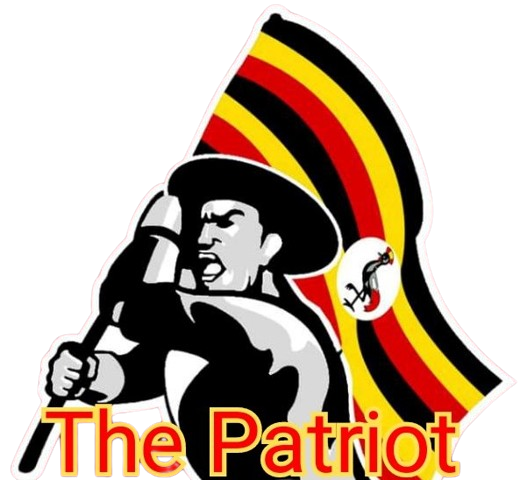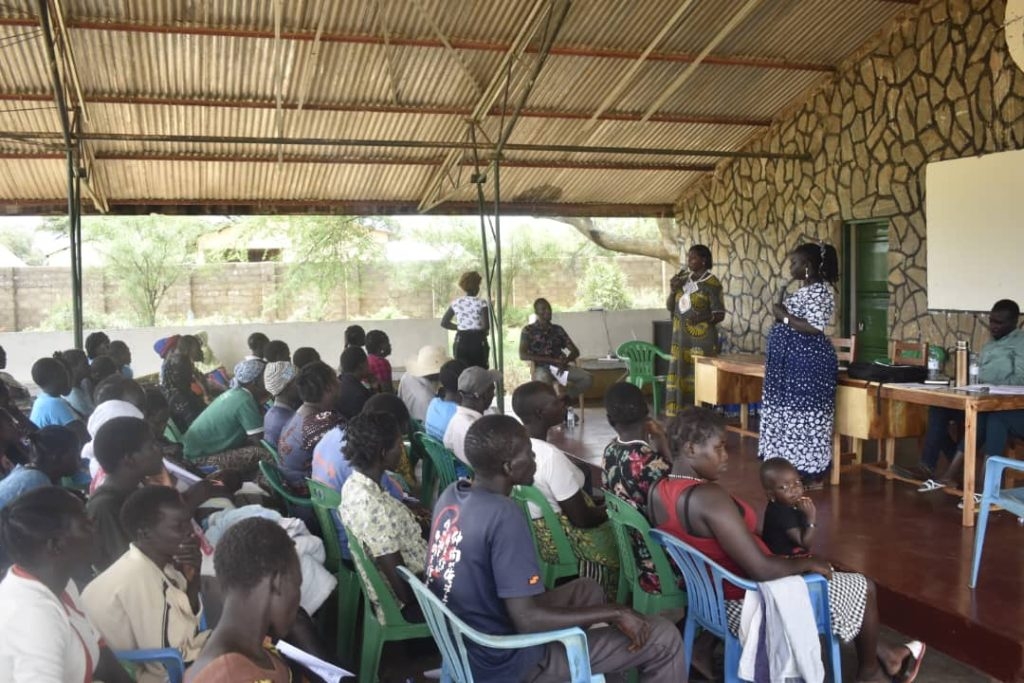By Richard Onapatum
KOTIDO – The Uganda Women’s Network (UWONET), in partnership with Nakere Rural Women Activists (NARWOA), is implementing a 2-year project, “HER VOICE”, aimed at strengthening the leadership and civic participation of women to promote participatory democracy for the country’s prosperity.
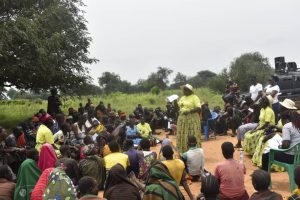
With support from USAID/Uganda Civil Society Strengthening Activity (USAID/CSSA), the project is being implemented in the sub-counties of Nakapelimoru, Panyangara, and Kotido Municipal Council.
The project seeks to challenge deep-rooted cultural norms and promote gender equality in the region.
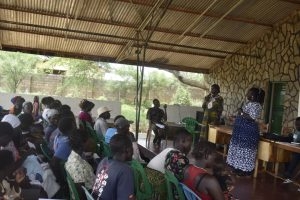
CHALLENGES FACED BY WOMEN
Women in the region face numerous barriers to leadership and civic participation, including high illiteracy rates, limited awareness of their rights, economic constraints, and harmful cultural practices that further reinforce gender biases.

PROJECT OBJECTIVES
The “HER VOICE” Project aims to support women in conducting community awareness meetings on women’s participation in leadership, create community awareness on the rights and obligations of citizens, and provide platforms for women to engage in political and good governance participation.
According to Omara Jonathan, Project Manager of “HER VOICE”, the project has already conducted community awareness meetings in the three operational sub-counties, engaging stakeholders, government officials, and community members.
A total of 409 participants, including 294 women and 115 men, attended the meetings.
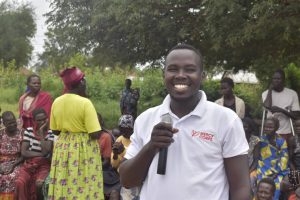
The Executive Director of NARWOA, Jessica Ruth Ataa, noted that the project has learned that community engagement is crucial, education is foundational, awareness drives change, economic empowerment is key, and tailored interventions are necessary.
She also recommended strengthening community partnerships, expanding educational initiatives, increasing awareness campaigns, enhancing economic opportunities, and adapting strategies locally.
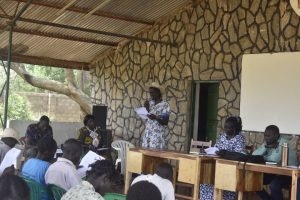
The “HER VOICE” Project has the potential to make a significant impact in promoting women’s leadership and civic participation in the region.

By addressing the challenges faced by women and leveraging lessons learned, the project can contribute to a more inclusive and democratic society.

